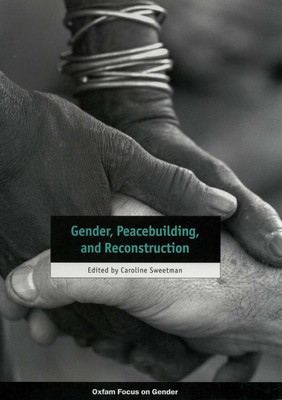
- We will send in 10–14 business days.
- Publisher: Oxfam
- ISBN-10: 085598533X
- ISBN-13: 9780855985332
- Format: 18.8 x 24.5 x 0.9 cm, minkšti viršeliai
- Language: English
- SAVE -10% with code: EXTRA
Gender, Peacebuilding, and Reconstruction (e-book) (used book) | bookbook.eu
Reviews
Description
This book examines the impact of armed conflict on women, men, and gender relations. Gender stereotypes of conflict depict women and children as powerless victims, while men are presented either as saviours of the weak and powerless, or as agents of violence and destruction. Reality is more complex. Women, girls, and boys also wage war as soldiers, often against their will. Atrocities committed against them give rise to desperate physical, mental, and material need, which reconstruction and peace initiatives must recognise and address. In addition, women need to be involved as decision makers in peace and reconstruction processes. These must founded on a vision of equality in governance and everyday social interactions, if a sustainable peace is to come about. Case studies included here come from India, Kosovo, Nicaragua, Sierra Leone, and Uganda.
EXTRA 10 % discount with code: EXTRA
The promotion ends in 22d.13:33:20
The discount code is valid when purchasing from 10 €. Discounts do not stack.
- Publisher: Oxfam
- ISBN-10: 085598533X
- ISBN-13: 9780855985332
- Format: 18.8 x 24.5 x 0.9 cm, minkšti viršeliai
- Language: English English
This book examines the impact of armed conflict on women, men, and gender relations. Gender stereotypes of conflict depict women and children as powerless victims, while men are presented either as saviours of the weak and powerless, or as agents of violence and destruction. Reality is more complex. Women, girls, and boys also wage war as soldiers, often against their will. Atrocities committed against them give rise to desperate physical, mental, and material need, which reconstruction and peace initiatives must recognise and address. In addition, women need to be involved as decision makers in peace and reconstruction processes. These must founded on a vision of equality in governance and everyday social interactions, if a sustainable peace is to come about. Case studies included here come from India, Kosovo, Nicaragua, Sierra Leone, and Uganda.


Reviews